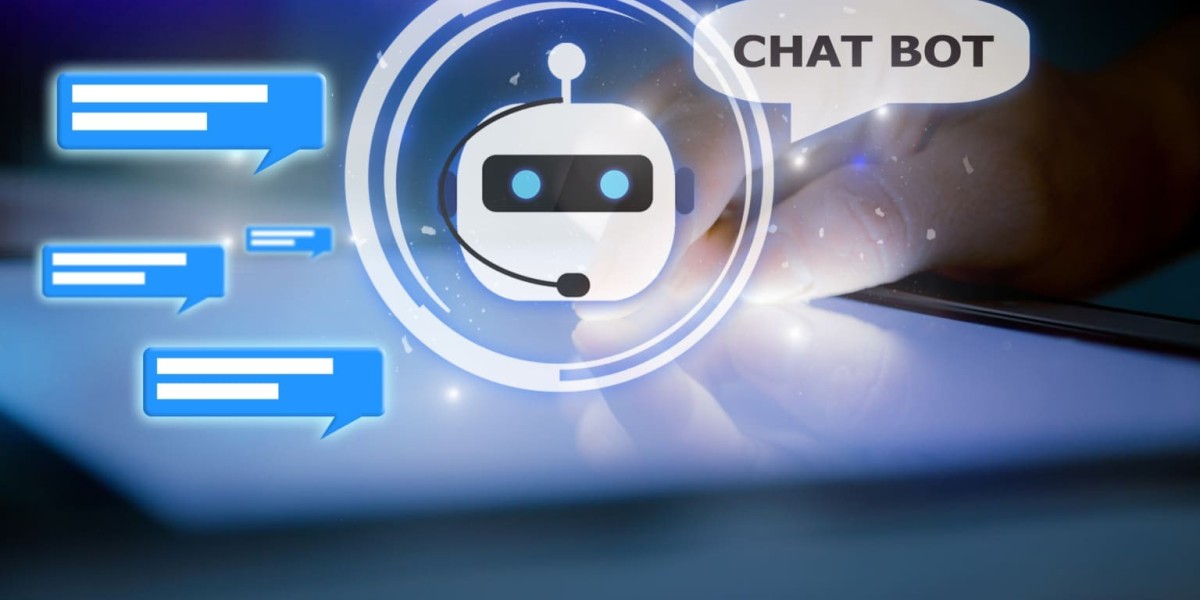In the rapidly evolving world of technology, Artificial Intelligence Chat bots have emerged as a groundbreaking innovation. These virtual assistants are transforming the way we interact with digital platforms, businesses, and each other. From customer support to personalized recommendations, AI chatbots are reshaping industries and enhancing user experiences across various domains.
What is an AI Chatbot?
An AI chatbot is a software application designed to simulate human-like conversations using natural language processing (NLP) and machine learning. These chatbots are capable of understanding, processing, and responding to user inputs in a conversational manner, making interactions with machines feel more intuitive and seamless.
There are two primary types of AI chatbots:
- Rule-based chatbots : These operate on pre-set rules and scripted conversations. While they can handle specific tasks efficiently, they lack the ability to learn from interactions and are limited to their programmed responses.
- AI-powered chatbots : These use advanced AI techniques, such as machine learning (ML) and NLP, to understand context, learn from conversations, and provide more dynamic responses. Over time, they can adapt and improve their performance based on user inputs.
The Rise of AI Chatbots
AI chatbots have gained significant momentum in recent years due to advancements in AI technologies and the growing demand for more personalized and efficient communication. Several factors have contributed to their rise:
- Improved Natural Language Processing (NLP) : NLP enables chatbots to understand and interpret human language more accurately. This advancement allows chatbots to engage in more natural and context-aware conversations, making them more effective in various use cases.
- Widespread adoption of messaging platforms : With the increasing popularity of messaging apps like WhatsApp, Facebook Messenger, and Slack, chatbots have found a natural home. These platforms provide an ideal environment for chatbots to assist users in real-time.
- Cost efficiency and scalability : AI chatbots can handle a vast number of interactions simultaneously, making them more cost-effective than traditional customer service methods. This scalability is especially useful for businesses that experience high volumes of customer inquiries.
Applications of AI Chatbots
AI chatbots are versatile and can be applied across numerous industries and use cases:
- Customer Service : One of the most common applications of AI chatbots is in customer support. They can assist with answering frequently asked questions, processing orders, resolving issues, and even providing 24/7 support. This not only reduces the workload on human agents but also enhances the overall customer experience.
- E-commerce : In the world of online shopping, AI chatbots can provide personalized product recommendations, help customers navigate websites, assist with checkout, and handle returns or inquiries about orders. This level of assistance can improve sales and customer satisfaction.
- Healthcare : In healthcare, AI chatbots are being used to schedule appointments, provide basic health information, and even offer mental health support. They can act as virtual health assistants, ensuring that patients receive timely and accurate information.
- Education : AI chatbots in the education sector can be used to tutor students, provide learning resources, answer questions, and guide learners through course materials. They can also assist with administrative tasks like enrollment and scheduling.
- Financial Services : In banking and finance, AI chatbots can help users manage accounts, provide information on transactions, and offer financial advice. They can also be used to detect fraud by identifying unusual activity on accounts and alerting customers.
- Travel and Hospitality : AI chatbots have become essential in the travel industry, where they assist travelers with booking flights, hotels, and activities. They can provide real-time updates, suggest travel itineraries, and even offer customer support during trips.
How AI Chatbots Work
AI chatbots rely on a combination of key technologies to function effectively:
- Natural Language Processing (NLP) : NLP enables chatbots to interpret and understand human language, making it possible for them to understand user queries and respond in a meaningful way.
- Machine Learning (ML) : Through ML, AI chatbots can learn from previous interactions, improving their ability to handle more complex queries over time. This learning process enables them to adapt to new situations and provide more accurate responses.
- Data Integration : AI chatbots are often integrated with various data sources, such as customer databases, product inventories, and analytics tools. This integration allows them to retrieve relevant information and offer personalized responses based on user data.
- Contextual Understanding : Advanced AI chatbots can maintain context within a conversation. This means they can remember previous interactions, allowing for more fluid and natural dialogue, especially in longer conversations.
Benefits of AI Chatbots
The adoption of AI chatbots offers numerous benefits for both businesses and users:
- Efficiency : Chatbots can handle repetitive tasks, freeing up human employees to focus on more complex responsibilities. This leads to increased operational efficiency and reduced labor costs.
- 24/7 Availability : Unlike human agents, AI chatbots can provide round-the-clock support, ensuring that customers or users can receive assistance at any time of day.
- Personalization : With access to user data, AI chatbots can offer personalized experiences, recommending products or services based on past interactions and preferences.
- Cost Savings : For businesses, AI chatbots can significantly reduce costs associated with customer service, marketing, and other areas that require high volumes of interaction.
- Scalability : Whether it's a small business or a large corporation, AI chatbots can easily scale to handle any number of customer inquiries without compromising on quality.
Challenges and Limitations
Despite their numerous advantages, AI chatbots do face certain challenges and limitations:
- Complex queries : While AI chatbots are improving, they still struggle with highly complex or nuanced queries that require deep domain knowledge or emotional intelligence.
- Language limitations : While NLP has advanced significantly, chatbots can still struggle with certain languages, dialects, or colloquial expressions, leading to misunderstandings in conversations.
- Data privacy concerns : As chatbots gather and process user data, privacy concerns may arise. It is crucial for organizations to handle user data responsibly and in compliance with privacy regulations such as GDPR.
- Human touch : AI chatbots, even with sophisticated machine learning algorithms, can't fully replicate the empathy and nuanced understanding that human agents bring to certain situations, especially in sensitive areas like healthcare or customer disputes.
The Future of AI Chatbots
The future of AI chatbots is promising, with several exciting developments on the horizon:
- Emotional Intelligence : Research is underway to develop chatbots that can understand and respond to human emotions. This will allow chatbots to offer more empathetic and sensitive responses, particularly in areas like mental health and customer service.
- Multimodal interactions : The next generation of AI chatbots will likely incorporate multimodal interactions, allowing users to communicate using voice, text, and even visual inputs like images or videos. This will make interactions even more seamless and intuitive.
- Deeper integration with AI technologies : As AI technologies like deep learning and reinforcement learning continue to advance, AI chatbots will become even more intelligent, capable of handling more complex queries and offering richer interactions.
- Voice-activated AI chatbots : With the increasing popularity of voice assistants like Amazon's Alexa and Google Assistant, voice-activated AI chatbots are likely to become more common, offering hands-free interaction in various settings, from homes to workplaces.
Conclusion
AI chatbots are transforming the way businesses and individuals interact with digital services. Their ability to provide efficient, personalized, and scalable solutions has made them a valuable tool in a wide range of industries. While challenges remain, the continuous advancements in AI technology promise a future where chatbots will play an even more integral role in enhancing communication and services. As we move forward, AI chatbots are set to become an indispensable part of the digital landscape, offering endless possibilities for innovation and improvement.


